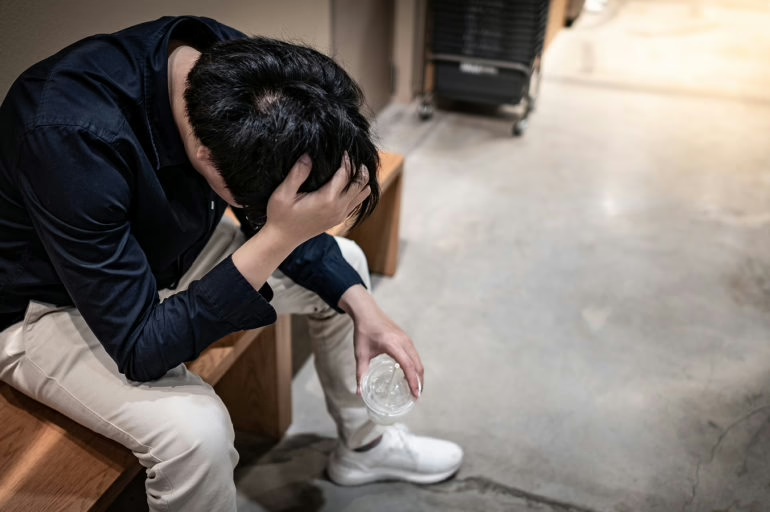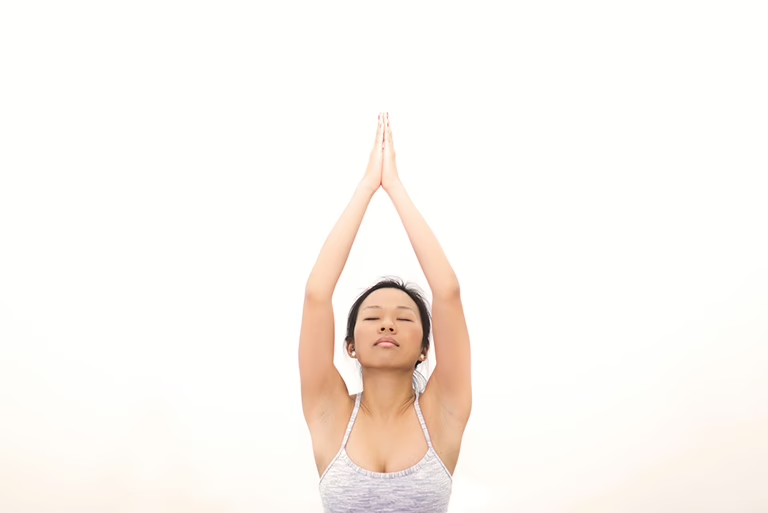Managing Mental Health Struggles With TCM Treatments and Therapies

WE COMBINE THE WISDOM OF TRADITIONAL CHINESE MEDICINE, MODERN TECHNOLOGY, AND PATIENT-CENTERED CARE FOR YOU TO THRIVE IN TODAY’S FAST-PACED WORLD. Share In a recent survey conducted by the World Health Organization, it was reported that the demand for mental health services increased significantly, and issues such as bereavement, isolation, unemployment and fear are triggering mental health conditions in new patients and exacerbating the symptoms in patients with pre-existing conditions. [1] In our clinics, physicians see a 117% increase in the number of patients with mental wellness concerns such as anxiety, sleeplessness linked to emotional concerns in the first half of 2021 compared to the 6 months before. Most of whom were not aware of their underlying mental state of health and were there to seek help for more visible chronic conditions. Mental health has always been a heavy topic to broach, both from the standpoint of the person suffering from it as well as the person who is trying to offer help. However, it is important to know that with the right treatment and support, those living with mental struggles can lead fulfilling and meaningful lives. What is mental health in TCM perspective? In TCM perspective, the organs that are most closely linked to mental health are the Heart and the Liver. The Heart controls the mind, and in turn the spirit, and regulates the decision-making process. When the mind is in a state of unrest, we often see patients with the following symptoms: The other organ closely related to mental wellness is the Liver. In TCM, Liver is responsible for regulating Qi and energy flow in our body. Thus, when the Liver is constricted, Liver Qi (Liver energy) becomes stagnated and energy cannot flow freely in the body. More recently, the importance of gut health and the relationship between poor gut health and skin issues is increasingly gaining public attention. Our gut contains trillions of strains of bacteria and microbes, called the gut microbiome. The gut microbiome helps maintain balance in our body systems. However, when there is dysregulation in the gut microbiome such as in the case of a leaky gut, skin issues will arise. Research has shown a link between leaky gut and Atopic Dermatitis [4][5]. Common symptoms of Liver Qi stagnation: Dull or persistent headaches, constant worrying of issues, even poor sleep quality are often observed in patients with anxiety High blood pressure, red and swollen eyes, and bad temper are often seen in patients with anger management issues Poor appetite, constant sighing, and suppressed mood and energy are often seen in patients with depression TCM recommended treatments and therapies for mental health Herbal Medication TCM herbs can help to improve emotional health and reduce stress by regulating Liver Qi. When there is emotional stress involved, we usually say that the Liver Qi is stagnant. Improving circulation of Liver Qi with herbs like Jia Wei Xiao Yao San will help to reduce stress and improve emotional health. When it comes to home remedies, some common herbs that are good for Heart Fire include longan and lotus seeds. These herbs can clear excessive heat from the body, including Fire originating from the Heart. In the clinic, we will prescribe a combination of cooling herbs to clear the Heart Fire and stomach-protecting herbs to balance the digestive system as cooling herbs can put burden on the stomach and cause gastric issues. Bringing the Heart back to balance helps to regulate emotional distress like anxiety Acupuncture Acupuncture is another effective way of reducing Liver Qi stagnation, which is a common deficiency linked to mental wellness in TCM. Common acupoints like Tai chong, Nei guan, Tai yang, and Feng chi are stimulated to soothe the mind and improve the flow of Liver Qi. To increase the efficacy, we use a detox-ing needling technique at these acupoints. This technique involves manipulating the needle in an anti-clockwise motion to release the Qi right before removing the needles. Cupping and Guasha Cupping and Guasha (Scraping) can help to release tension in the muscles of our neck and back to ensure a healthy flow of Qi in our body. Better Qi and Blood circulation is also beneficial in improving patients’ sleep quality. Adequate rest is vital for our body to rest, detox, and re-energize to keep our mental health in a prime condition. Moxibustion For patients with depression, we use moxibustion on Bai hui, Qi hai, and Guan yuan acupoints to balance the Yin and Yang energies in the body. We generally avoid using moxibustion for patients experiencing excessive anger to prevent adding more fire or heat to the body. Other therapies for mental health Electro-Lymphatic Therapy(ELT) Our lymphatic system is a giant network of vessels that drains from the peripherals towards the cardiovascular system. Its two main functions are to provide immune support and drain away excess lymph fluids and waste products. It is a passive system that relies on the contraction of muscles to move the lymph fluids within the vessels along. Electro Lymphatic Therapy is a technology that promotes lymphatic drainage in the body. When there is an excess of inflammatory cells present near the brain or any part of the body, the lymphatic system becomes congested and could lead to increased risk of infections and psychiatric concerns. [2] ELT helps to promote lymphatic drainage and clear inflammatory cells away from congested parts of the body. In the clinic, we use an FDA-registered Electro-Lymphatic Therapy (ELT) machine to enhance the flow of the lymphatic system. With the variable penetration depths, we are able to clear both superficial and deep layers of the lymphatic system. A healthy, decongested lymphatic system is vital to the body’s immune system and helps to alleviate mood disorders and improve mental health. Cell Pro Therapy (CPT) Negative ions are naturally occurring and they help to maintain voltage equilibrium of our cell membranes (essential for cellular metabolism). However, due to excessive exposure to free radicals, EMF, and carcinogens in our environment, this voltage equilibrium is disrupted in
When Yoga and TCM blends

WE COMBINE THE WISDOM OF TRADITIONAL CHINESE MEDICINE, MODERN TECHNOLOGY, AND PATIENT-CENTERED CARE FOR YOU TO THRIVE IN TODAY’S FAST-PACED WORLD. Share Yoga and Traditional Chinese medicine (TCM) appear to be two disconnected wellness protocols with distinct origins. Yoga is believed to originate in India circa 3000 B.C., with stone-carved figures of yoga postures found in the Indus Valley depicting the original poses and practices, while TCM dates back more than 3,500 years of Chinese medical practice that includes herbal medicine, acupuncture and cupping therapy. Yet, increasingly, practitioners who marry the two are finding it effective to better help patients and clients. “Adding TCM into your yoga practice creates the opportunity for you to observe the nuances and subtleties of your body on a deeper level. You can then use this newfound knowledge to help you move toward balance.”– Tiffany Cruikshank, founder of Yoga Medicine® To understand why incorporating Traditional Chinese Medicine into your yoga practice can amplify your results, one first needs to understand some fundamentals of TCM. In TCM, there are twelve regular meridians which move the Qi (energy) and Blood, each represent a single organ and connects the internal (organ) to the external (exterior skin). Smooth flowing of Qi through the 12 meridians balances Yin Yang within the body and governs our body functions. On the other hand, stagnation of Qi flow in a particular meridian will result in issues of the organs and areas where the meridian passes through. Many TCM practitioners engage in Qigong practice to ensure good flow of Qi, healthy body constitutions and ultimately mind-body-soul balance. Similarly in yoga, the concept of smooth flowing energy throughout the body essential to the well-being of a yogi. Yin Yoga engages in restful, long-held postures and primarily focus on our body’s meridians.1 Through the poses, yin yoga helps to stimulate the energy pathways by targeting the meridians. When we hold each pose for longer periods of time, we are placing a stress on the fascia (connective tissues) that holds every cell in the body.2 The fibrous connective tissues are strong and springy when you are healthy, rigid and taut when we have a sedentary lifestyle.3 We can dissipate energetic stagnation by activating, squeezing and stretching our body tissues where meridians are located. Fascia, like meridians, will benefit with smooth flowing energy through it. The twelve meridians are named after its respective associated Organ and are associated with various emotions such as fear, excitement and anger. Excessive emotions are viewed to disturb the harmony in one’s body. In TCM when we treat an organ and its respective emotions, we help to ensure good Qi flows and balance of the autonomic nervous system. This balance is critical to our holistic well-being. Source: www.pexels.com In yoga practice, it is important to still our mind and body to achieve harmony in the body. Many occasions yoga instructors advise students to engage good breathing techniques as these not just help with good circulation of oxygen through the muscles, but it also has calming effects on the mind. Breath controls the body, mind, and emotions.4 In the process of calming the mind, balancing our emotions, both TCM and yoga actively utilise meditation as a key approach. Many people find it difficult to meditate as we are not used to it. Yoga postures are a great way of preparing the body for meditation, stimulating the flow of energy and balance to our spine and our mind.5 They work hand-in-hand and are interrelated to bring about higher awareness of our body and conscience. Harvard researchers have also found that meditation not only reduces stress but can produce scientifically measurable effects on the brain’s physiology.6 If you are looking for inspiration to start meditating, try reading real stories from people on their mediation journey and how it helped them.7 Source: Natural Health Zone As more research goes into TCM and yoga, there will bound to be more positive benefits by blending both traditional wellness protocols together. If you are keen to find out more about marrying Traditional Chinese Medicine with Yoga, check out our Partner Jal Yoga. [email protected] Alexandra Studio 991 Alexandra Road #01-03A (S)119964 map 6251 0710 Upper Bukit Timah Studio 260 Upp Bt Timah Rd #02-01 (S)588190 map 6732 1483 Katong Studio 131 East Coast Road #03-01 (S)428816 map 6241 3758 Upper Thomson Studio 213 Upp Thomson Rd #01-01 (S)574348 map 6258 9621 Woodlands Studio 30 Woodlands Ave 1, #02-5A, (S)739065 map 6909 9829 To learn more about Oriental Remedies Group, visit our homepage or contact us via Whatsapp at +65 8087 0486 Disclaimer: The content on this page is for informational and educational purposes only. Such medical information may relate to disease, injury, drugs and other treatments, medical devices and/or health products. Medical information does not amount to advice, and if advice is needed an appropriate professional help should be sought. The disclaimer asserts that no warranties or representations are given in respect of the medical information, and that the website operator should not be held liable if a user suffers any injury or loss after relying upon the medical information. RELATED TOPICS